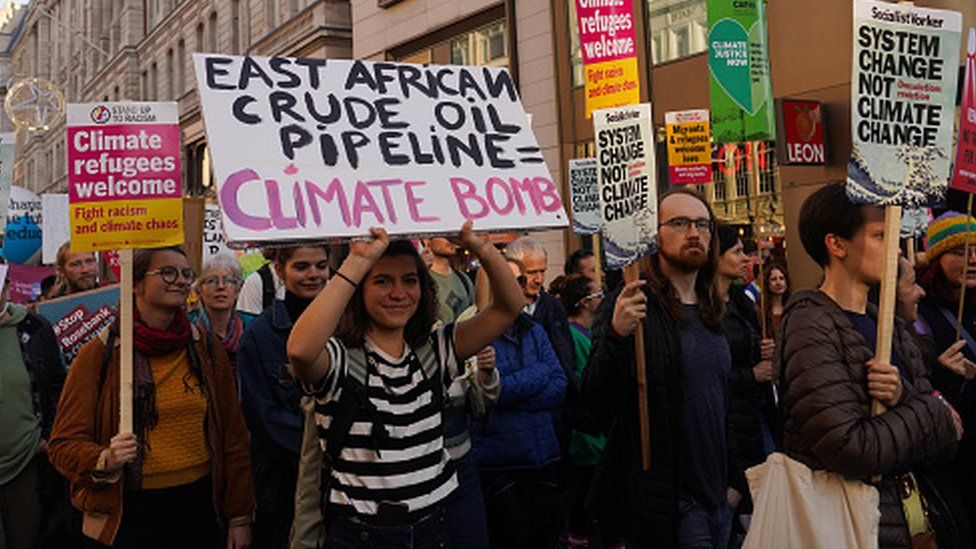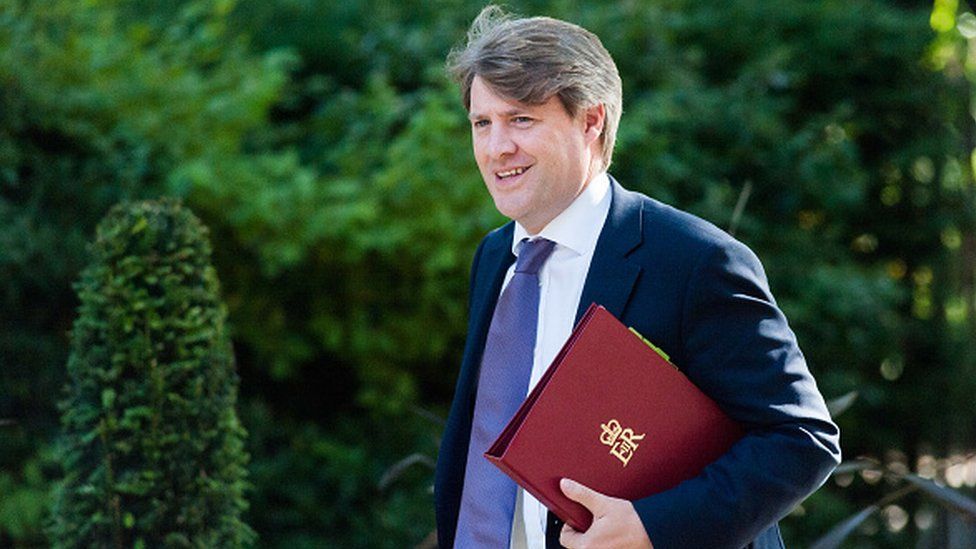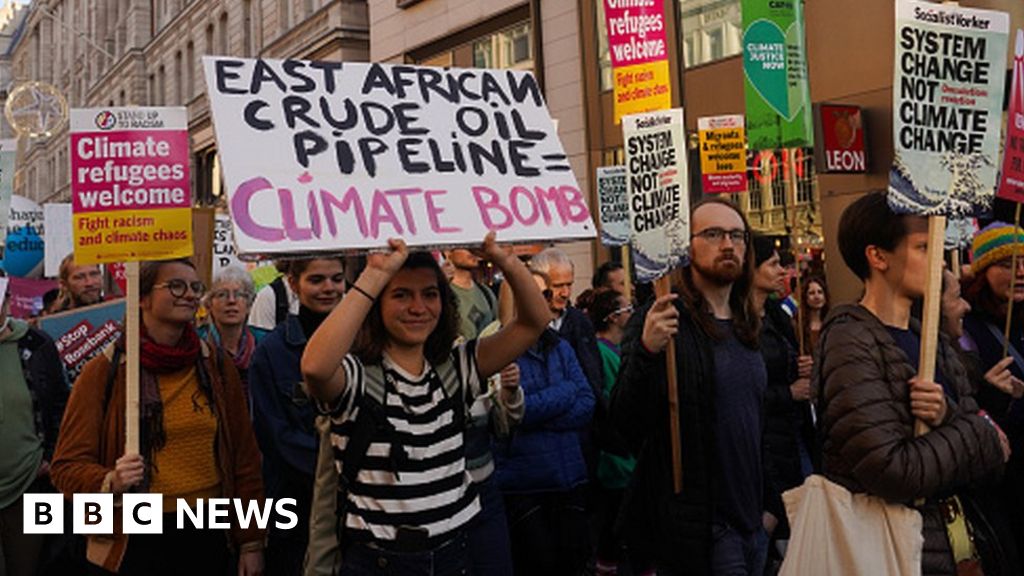 Getty Images
Getty ImagesThe UK government is at risk of failing to deliver on its net zero plans unless it takes a “new approach” to the climate target, a review seen by the BBC has found.
The review, by Tory MP Chris Skidmore, says delaying climate action would put the UK at an economic disadvantage.
It says the UK is “falling behind” on some targets and had lost opportunities because of “inconsistent policy”.
The review outlines 25 actions the government should take by 2025.
Recommendations include scrapping planning rules for solar panels and “eco-labelling” more environmentally friendly foods to lower carbon emissions.
The review was leaked ahead of its publication on Friday, and a copy has been shared with the BBC.
Critics of the review said it falls short of the ambition required to drive investment in renewable sources of energy and mitigate climate change.
Labour’s shadow climate secretary, Ed Miliband, said the government’s lack of “urgency and consistency” was “depriving our country of the economic opportunities climate action offers”.
Green MP Caroline Lucas said the review shied away from “the truly transformative measures to end our dependence on dirty, dangerous fossil fuels”.
- What does net zero mean?
- Can the UK afford its net zero policies?
- Is the UK on track to meet its targets?
Net zero refers to the balance between the amount of greenhouse gas produced and the amount removed from the atmosphere.
The UK has set a legally binding target of achieving net zero carbon emissions by 2050, as part of the global effort to avert the worst effects of climate change.
Mr Skidmore is one of the greenest Tory MPs and signed the 2050 emissions target into law in 2019, when he was an energy minister.
In September this year, former Prime Minister Liz Truss commissioned him to review the government’s delivery of net zero, to ensure it was “pro-growth and pro-business”.
Mr Skidmore spent months roving the country to meet politicians, business leaders and energy experts as part of his evidence-gathering process.
Calling net zero “the growth opportunity of the 21st century”, Mr Skidmore says the UK “must move quickly” to reap the economic benefits of achieving the target.
“We have heard from businesses that economic opportunities are being missed today because of weaknesses in the UK’s investment environment – whether that be skills shortages or inconsistent policy commitment,” Mr Skidmore writes.
“Moving quickly must include spending money. We know that investing in net zero today will be cheaper than delaying, as well as increasing the economic and climate benefits.”

A key demand from across the country was “the need for clarity, certainty, consistency, and continuity from government”, the review says.
On top of setting out long-term goals, the review recommends 25 actions the government should take in the next two years. These include:
- Legislating to phase out gas boilers by 2033, rather than 2035
- Providing longer-term funding certainty for major net zero projects, including new nuclear power plants
- Implementing plans this year to increase solar and onshore wind generation, including a target of increasing solar generation fivefold by 2035
- Ending routine oil and gas flaring by 2025, rather than 2030
In his conclusion, Mr Skidmore said the UK was in a “net zero race” and delaying decisions risked losing jobs, infrastructure and investments to other countries.
The UK, he says, had “reached a tipping point”. where the “risks of ‘not zero’ are now greater than the associated risks of taking decisive action on net zero now”.
“This is why we need a new approach to our net zero strategy,” Mr Skidmore writes. “One which identifies stable ten-year missions that can be established across sectors, providing the vision and security for stakeholders and investors.”
-
Energy transition – a complex challenge
-
1 day ago
-
-
A really simple guide to climate change
-
2 November 2022

-
-
Net zero sceptics set to meet MP reviewing target
-
7 November 2022

-
